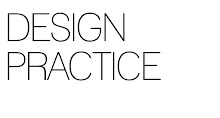A proposed essay title or topic
Has reality television become a new panoptic device?
The main issues addressed by your argument (in bullet points)
- surveillance society
Has reality television become a new panoptic device?
The main issues addressed by your argument (in bullet points)
- surveillance society
- new ideas about 'celebrity'
- controlled veiwing
- simulations
Any visual material that you will look at.
Any visual material that you will look at.
- Big Brother (Channel 4)
What theoretical approach / methodology will you use? e.g. marxism, the gaze, psychoanalysis etc.
- Cultural Theory, panopticism, the gaze
What theoretical approach / methodology will you use? e.g. marxism, the gaze, psychoanalysis etc.
- Cultural Theory, panopticism, the gaze
Which specific theorists / writers will you refer to?
- Jean Baudrillard
- Michel Foucault
- Guy Debord
At least 5 books / articles / resources already located (referenced using Harvard)
- Jean Baudrillard, Simulations (1983)
- Guy Debord, The Society of the Spectacle (1967)
- Michel Foucault, Discipline and Punish, (1975)








